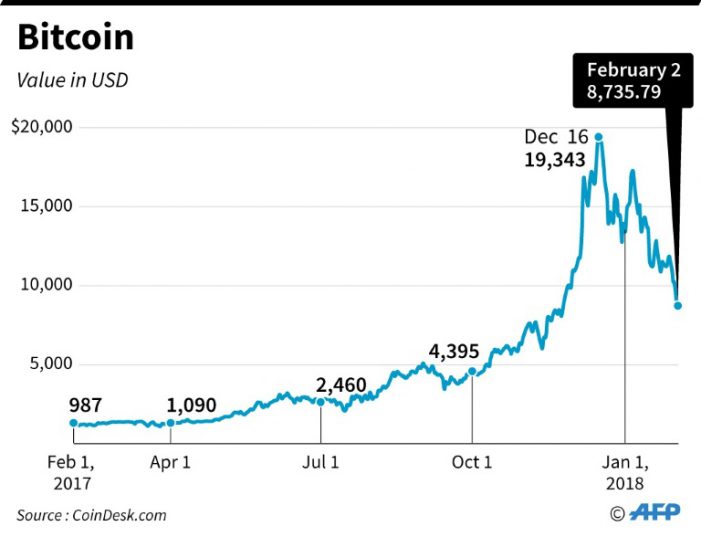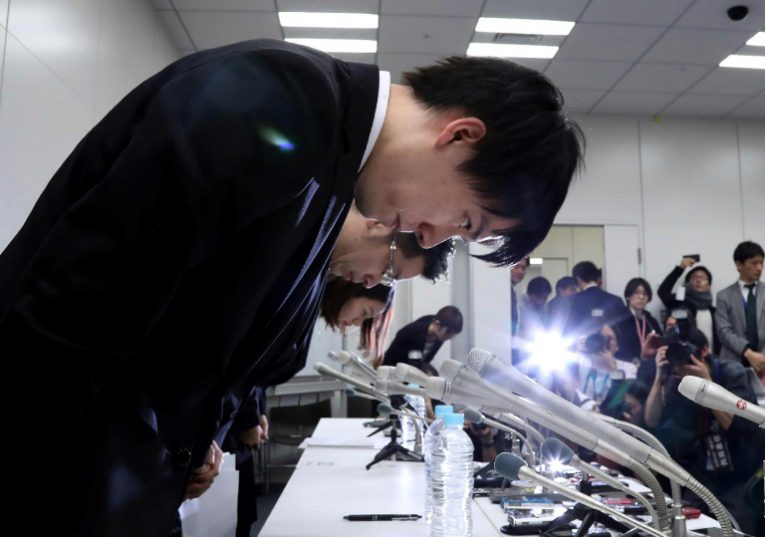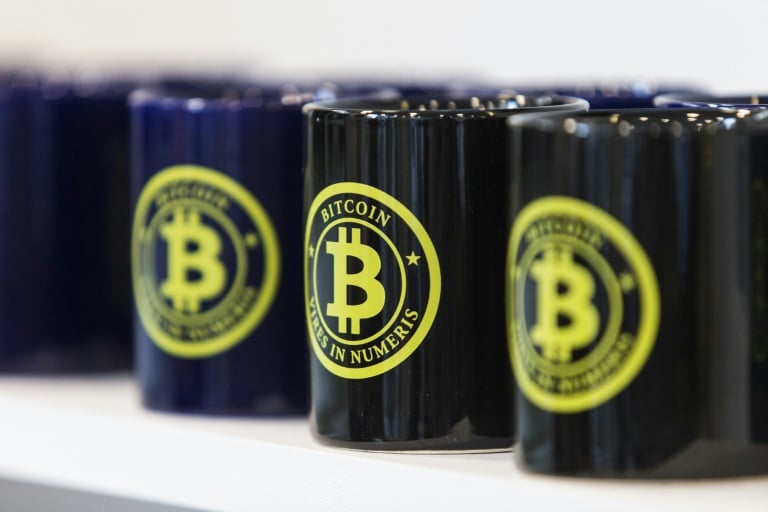Police confirm second suspect arrested for hit inside Wynberg court
While headline-grabbing hacks like that suffered by Japan’s Coincheck are likely to attract the attention of regulators, experts say the “Teflon” crypto boom is now part of the economic landscape.
Cryptocurrencies have “been down numerous times, but always able to get off the canvas,” Stephen Innes, head of Asia-Pacific trading at OANDA, told AFP.
Virtual currencies have certainly taken some hefty blows recently.
In the dead of night, hackers stole $530 million in Japanese virtual currency from Coincheck, sending prices plunging and underlining the vulnerability, and volatility, of cryptocurrencies.
The January 26 hack appears to be the largest cryptocurrency theft ever, exceeding even the $480 million stolen in 2014 from another Japanese virtual currency exchange, MtGox.

Bitcoin
In the wake of the MtGox theft, Japan’s government introduced regulations requiring exchanges to obtain a government-issued licence.
And the news from Coincheck again piqued regulators’ interest, with Finance Minister Taro Aso admitting this week that the government “needs to strengthen our supervision.”
Coincheck “did not store the important things separately. I think they lacked fundamental knowledge or common sense,” he said.
Regulators have already clamped down in South Korea and China and even in Russia, where a draft law was drawn up last week aimed at controlling the production and creation of virtual money.
On Thursday India’s Finance Minister Arun Jaitley said the government did not consider cryptocurrencies legal tender and would “take all measures to eliminate” their use as part of a payment system and in funding illegitimate activities.
Innes said such regulatory oversight was long overdue, as the current framework was “far too lax given investors’ vulnerabilities from both market volatility and cybercriminals.”
“In general, the regulatory framework in Asia was terrible, which offered criminals mouth-watering targets,” he added.
– ‘Systemically important’ –
Crypto regulation was also on the minds of the global elite at this year’s World Economic Forum, with British finance minister Philip Hammond urging governments to be “cautious.”
“Possibly we do need to look at the way we regulate this environment before the amount of outstanding bitcoin becomes large enough to be systemically important in the global economy,” he told Bloomberg TV.
Tech giant Facebook then got in on the act, banning all ads related to cryptocurrencies in an effort to fight scams.
All this has taken its toll on the value of bitcoin — the best-known virtual currency — which soared to nearly $20,000 before dropping back to less than half that value with wild daily swings.
But despite the negative publicity and the growing attention of regulators, enthusiasm for cryptocurrencies does not appear to be waning.

Coincheck executives were suitably apologetic after hackers stole hundreds of millions of dollars in digital assets
BitFlyer, Japan’s main bitcoin exchange, told AFP it had actually seen increased interest after the Coincheck hack was revealed.
“Many people got interested in cryptocurrencies. On our platform, the number of new account applications increased,” bitFlyer CFO Midori Kanemitsu said.
And Innes said virtual currency had “a sort of Teflon persona.”
He said he expected to see dips down to around $6,000 “before the market irons out.”
“Given recent trading patterns, I suspect $10,000-$15,000 will be the sweet spot, and as more traditional market makers enter the fray… volatility will decrease.”
– ‘More selective’ –
Industry professionals say there is no stopping the technology behind virtual currencies and while some cryptocurrencies may disappear, others will likely pop up in their place.
“All kinds of new ideas are emerging,” said lawyer Ken Kawai, an expert in financial regulation and the blockchain technology behind cryptocurrencies.
“Hacks occur. People who choose to use this technology must be aware of the danger associated with it,” he told AFP. “I expect to see users becoming more selective when choosing exchanges.”
To ensure client safety and improved use of the technology, virtual currency exchanges should face strict regulations like banks and brokerages, he suggested.
Banks and e-commerce firms could use the most stable cryptocurrencies among themselves, while others could be traded as alternative assets, Kawai said.

Is bitcoin for mugs?
With investor interest apparently insatiable, regulators are likely to introduce a range of tighter checks, including requiring exchanges to verify the identity of their clients.
They could also impose outside cyber audits to protect against the kind of security loopholes that appear to have led to the Coincheck theft.
Cryptocurrency trading is also likely to come under the scrutiny of tax authorities, potentially cooling investor appetite if particularly steep new tariffs are rolled out, analysts say.
Kanemitsu said bitFlyer would welcome “good and reasonable regulation” as “an opportunity.”
Hikaru Kusaka, co-founder of blockhive, an innovation incubator, said consumers will eventually weed out the weak virtual currencies and only the best will survive.
“To put it dramatically, maybe not all the cryptocurrencies will disappear, but new ones will emerge, and there will be a process of picking and choosing,” said Kusaka.
Download our app